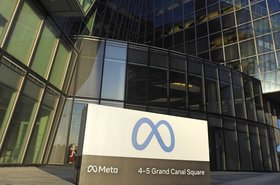The National Stock Exchange of India (NSE) is going to move its primary data center out of its Mumbai headquarters.
India's largest stock exchange will move its primary data center away from its headquarters at the Bandra Kurla. The move also involves servers belonging to other financial institutions taking part in the stock exchange, which are co-located at the NSE facility.
The move comes as NSE's former head has been arrested over an alleged "colocation scam" giving one broker preferential access to market data.
Moving the servers
"With the surging trading volumes, NSE will have to keep adding new servers which require a lot of space," NSE's managing director and chief executive officer Vikram Limaye said, according to a report in India's Economic Times. "We have decided to set up an exclusive data center on the outskirts of Mumbai and both the data servers and co-location servers will be moved to this data centre."
As well as the NSE's servers, the facility will hold servers belonging to traders on the stock exchange, which the NSE hosts at its data center for a fee. This enables those traders to get a small lead on rivals, because their servers are located closer to the NSE's servers and get stock prices a few milliseconds in advance.
NSE's page for colocation servers reveals that its colocation service is for non-NEAT (National Exchange for Automated Trading) front-end servers, i.e. those using a different front end to the NSE's own National Exchange for Automated Trading (NEAT). Customer can lease from a quarter of a rack to one whole rack, at prices from ₹3,000 crore to ₹12,000 crore per year, plus setup charges.
The data center move appears to Economic Times reports that the NSE has limited space for expansion on its current site, and demand is surging. Apparently the turnover in the futures and options segment went up six-fold between 2019 and 2022, reaching ₹15,280 trillion ($198 trillion). Over that same period, the NSE's IT spend increased, going up ten-fold from ₹400 crore ($52 million) in FY19 to an estimated ₹4,000 crore ($520 million) in 2023.
The data center move is expected to be completed by the end of 2022, at a cost of ₹1,000 crore ($130 million). While Economic Times reports the new data center is a third party facility, DCD has not confirmed whether the new data center space will be owned by NSE, or rented.
Co-location scam
The NSE has seen a number of former executives involved in scandals of late. Former NSE CEO Chitra Ramkrishna, was arrested by India's Central Bureau of Investigation (CBI) on accusations of sharing confidential market information with a man she regarded as a "Himalayan yogi". The case dates back before 2018, and the CBI has been accused of being "lackadaisical" in its four-year probe.
Denying her appeal against arrest, judge Sanjeev Aggarwal said: "despite being the capital market watchdog, SEBI [the Securities and Exchange Board of India] has been too kind and gentle on the accused persons." He commented that the "magnitude of the present case may be huge, as due to this financial skulduggery huge loss may have been caused to adherent stockbrokers, institutional investors, foreign institutional investors and honest investors, whose faith in this premier financial institution - the NSE - may have been severely shaken and dented."
"No action seems to have been taken against main beneficiaries of the present co-location scam, and others for almost four full years," said the judge, adding that they "seem to be enjoying merrily at the expense of common citizenry."
Ms. Ramkrishana appeared in court on Monday, with the CBI demanding she be kept on remand in custody. A former NSE group operating officer, Anand Subramanian, has also been arrested in the case.
The case alleges that Ms. Ramkrishna became a "puppet" in the hands of a "holy man" she met by the river Ganges. Under his orders, she promoted Mr. Subramanian and paid him an "astronomical" salary. A forensic audit of NSE, carried out by E&Y, concluded that Subramanian invented the guru, and used an email account [email protected] to communicate with her, masquerading as him. The "scam" apparently began in 2015, and both executives resigned in 2016
The NSE is also being investigated for reportedly previously allowing some brokers preferential access in its facility, allowing them to operate closer to their servers upon payment of additional fees to NSE, providing a latency advantage on trades. The CBI has previously registered a case against Sanjay Gupta, owner, and promoter of OPG Securities Pvt Limited alongside a number of other people over the incident.
It's not currently clear how closely tied the 'yogi' leaks and the preferential colocation access are, but local press are presenting them both under the idea of a single 'colocation scam'.
Meanwhile, the Exchange's current servers may be showing signs of strain: the NSE reported intermittent performance issues with its NIFTY100 index yesterday, on 7 March.



